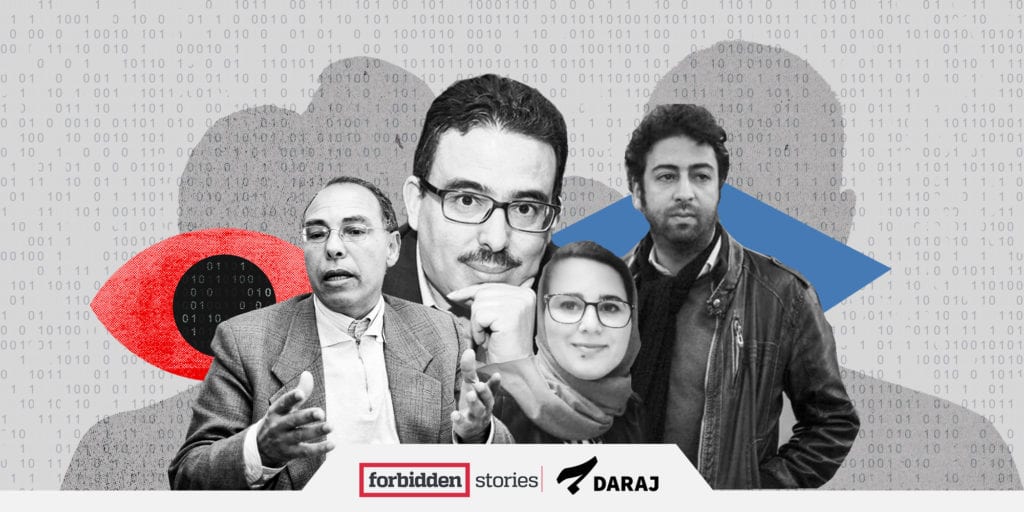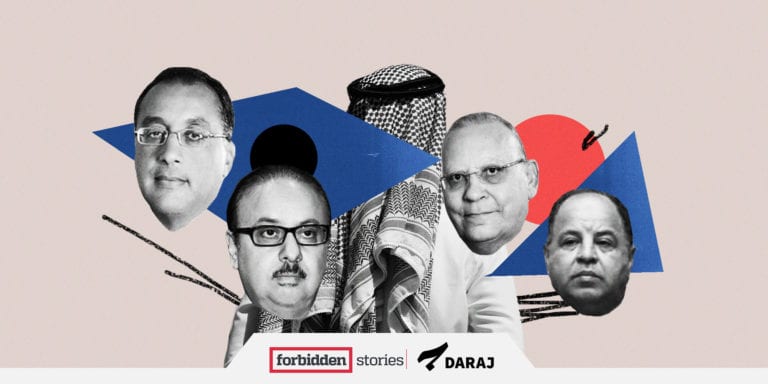This article is part of the Pegasus Project, a collaborative investigation coordinated by the Paris-based media institution Forbidden Stories and Amnesty International’s technical laboratory. The project investigates data linked to the Israeli digital intelligence group NSO, which sells advanced surveillance systems to governments around the world.
80 journalists representing 17 media organizations from around the world, including Daraj, worked to produce this series of investigations.
Six years have passed since the launch of “Decisive Storm” in March 2015, during which military operations began in Yemen led by the Kingdom of Saudi Arabia and with the participation of the countries of the so-called “Arab coalition” headed by the UAE. The operations were led to support the legitimacy of the government of Abd Rabbuh Mansour Hadi and limit the progress of the Houthi-backed group from Iran.
However, the storm did not end within a week as Saudi Arabia had expected, but rather took months, during which the ranks of what is supposed to be “one line” were divided between the legitimate government backed by Saudi Arabia and the Southern Council backed by the United Arab Emirates.
Although the UAE participated sharply at the beginning in the military operations led by Saudi Arabia in support of the government of Abd Rabbo Mansour Hadi, the UAE’s confidence in Hadi and his government is completely non-existent, and Yemen has been one of the main points of contention between the two countries. This has been proven furthermore by recent leaks in the context of the Pegasus project.

According to the new leaks, the UAE resorted to the private Israeli company NSO, which includes people who were members of the Mossad and the Israeli army, and specifically to its famous “Pegasus” spyware, to monitor and spy on most of the Hadi government ministers.
The name of the president himself was also mentioned within these leaks, but the investigation team was unable to verify his numbers. His children also were allegedly not spared from the tapping, but the investigation team was not able to verify their numbers either, with the exception of Jalal Abd Rabbo Mansour Hadi.
The Former Prime Minister is Under Scrutiny!
Among the most prominent of those targeted was the former prime minister, Ahmed Obaid bin Daghr, whose term in office lasted for two years and six months (April 4, 2016 until October 15, 2018). This is the period during which the Southern Transitional Council was established, after the then Governor of Aden, Major General Aidarous al-Zubaidi, called for the establishment of a southern political entity in exchange for the northern political forces in September 2016, during which the Presidency of the Southern Transitional Council was announced on May 11, 2017.
Arqam Bin Dagher has been targeted in Saudi Arabia from 2016 to mid-2019, and it is likely that he is still under surveillance to this day. Accordingly, the wiretapping of Ben Dagher began with his premiership in April 2016, but did not end with the end of his term in 2018.
It is worth noting that the targeting does not mean with certainty that the attempt succeeded and the phones were hacked, but it confirms the existence of a hacking attempt.
The peak of the Socotra crisis was during the presidency of Bin Daghr’s government. He was the one who officially announced on May 14, 2018 that “the Socotra crisis ended with the success of the Saudi mediation”, stressing that “the Yemeni flag has returned to fly again at Socotra airport and port guarded by Yemeni soldiers.”
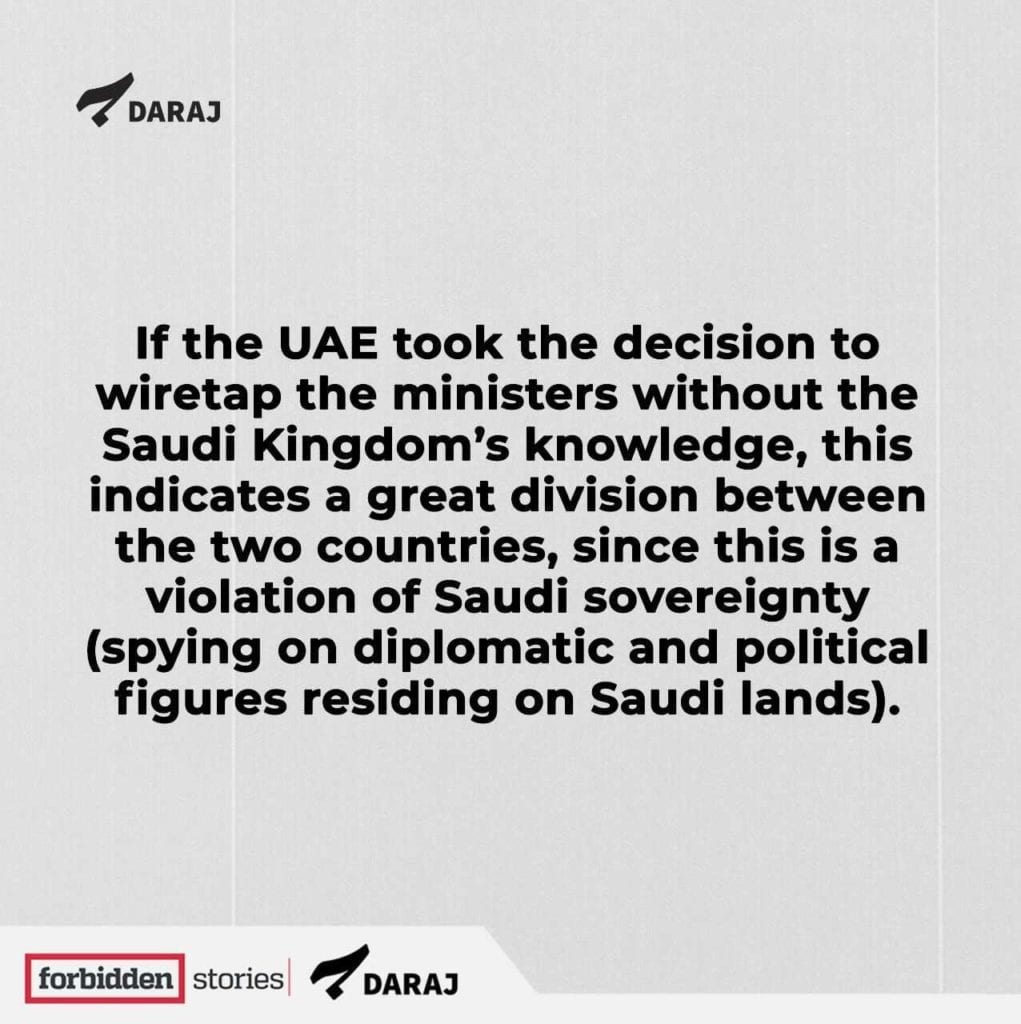

In June 2020, he also spoke of a divisive plot in Yemen, in reference to the UAE.
It is clear that the UAE does not like Bin Dagher either. At the beginning of this year, specifically on January 16, 2021, the Yemeni president issued a republican decision that included appointments to several positions. In this context, Ahmed Obaid bin Daghr was appointed Chairman of the Shura Council. The UAE quickly objected to these appointments as a departure from the Riyadh Agreement.
The Riyadh agreement came with Saudi mediation after the August 2019 clashes between the forces of the Southern Transitional Council (backed by the UAE) and the forces affiliated with the Yemeni government in Aden, which resulted in the council’s control of Aden.
The most important provisions of the Riyadh Agreement signed in November 2019 between the Yemeni government and the Southern Transitional Council, implementation starting from December 2020:
1- Forming a government of political competencies that does not exceed 24 ministers.
2- Ministerial portfolios shall be divided equally between the southern and northern governorates.
3- That the ministers not be “involved in any hostilities or incitement.”
4- The President of the Republic, in consultation, appoints a governor and director of security for Aden Governorate, and appoints governors and security directors for the rest of the southern governorates.
5- Depositing state revenues, including oil, tax and customs, in the Central Bank in Aden.
6- Activating the oversight bodies, including the Central Organization for Control and Accountability, restructuring the National Anti-Corruption Authority and activating its role, and restructuring and activating the Supreme Economic Council.
7- Local security forces replace the military forces in the governorates of Aden, Shabwa and Abyan.
8- Collecting and transferring weapons from all military and security forces in Aden, to camps inside Aden, to be determined and supervised by the leadership of the Arab coalition.
9- Transferring all military forces affiliated with the government and military formations affiliated with the Transitional Council in the governorate of Aden to camps outside the governorate, with the exception of the forces to protect the presidential palaces.
10- Unification of the military forces of the Yemeni government and the Transitional Council and their annexation to the Ministry of Defense.
Abdul Malik Al-Mikhlafi!
It is no secret to anyone who follows Yemeni politics about the UAE’s suspicions and mistrust of Abdul Malik Al-Mikhlafi. The leaks show that the UAE targeted Abdul-Malik Al-Mikhlafi in Egypt, Yemen and Saudi Arabia.
Al-Mikhlafi has held an important position as Yemen’s foreign minister since the mini-government of exile headed by Khaled Bahah, since the cabinet reshuffle on December 1, 2015, which replaced Riyadh Yassin Abdullah with Al-Mikhlafi. Al-Mikhlafi also held the position of Deputy Prime Minister.
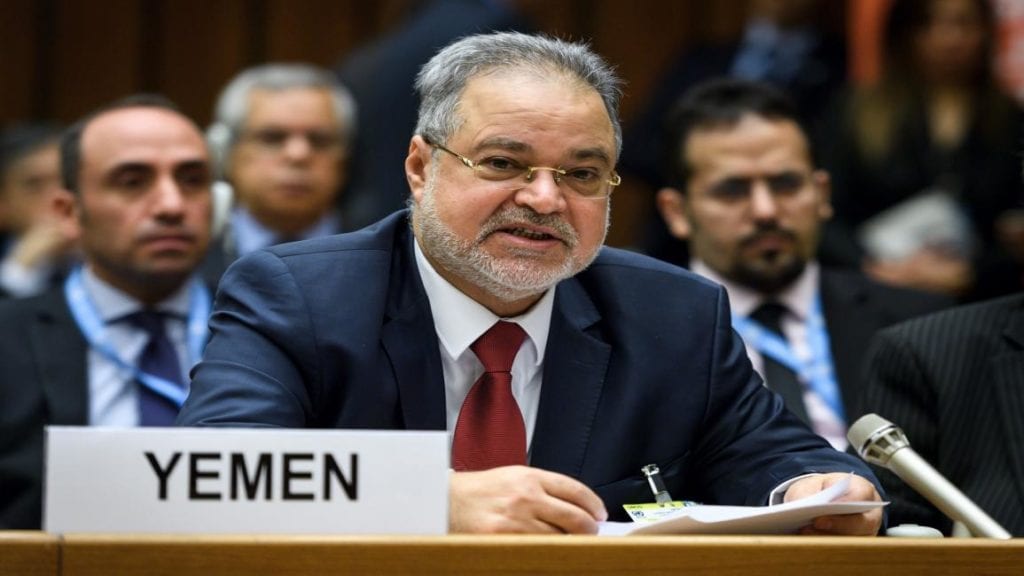

In his position, Al-Mikhlafi said in April 2018, that “the differences between the Yemeni government affiliated with legitimacy and the UAE stand as an obstacle to the return of President Abd Rabbo Mansour Hadi to his country.” At that point, he confirmed the existence of a “battle between one team”, and talked about the role that the Yemeni government will play to “fix the imbalance” with the coalition and the UAE.
Al-Makhlafi had admitted more than once that there were differences with the UAE, which is likely the reason he paid the price of the legal dispute with the UAE. Yemeni President Hadi dismissed him from his position through a cabinet reshuffle on May 23, 2018, and appointed Khaled al-Yamani in his place, knowing that al-Mikhlafi was the highest-ranking official in the government from the northern governorates. Instead, he was appointed as an advisor to President Hadi, a known position of honor handed out to remove certain people from their sensitive positions.
The UAE’s interest in eavesdropping on Al-Mikhlafi came in the period between September 2018 and February 2019, i.e. after his dismissal, perhaps in order to track his contacts and ensure that he did not make any public reactions, statements or contacts with diplomatic bodies that he might talk to about the dispute between Saudi Arabia and the UAE or reveal internal secrets!
Read Also:
The List Goes On!
Bin Dagher was not the only Yemeni political figure who was targeted, but other names included that the investigation team was able to verify their authenticity (despite confiscating many of the numbers associated with them):
Abdullah Mohsen Al-Akwa: He held the position of Minister of Electricity for several successive governments and was Minister of Electricity in the National Partnership Government headed by Khaled Bahah (November 2014 – January 2015). And Minister of Electricity in the government of Ahmed Obaid bin Daghr (2016-2018). He was also Minister of Electricity for about a month in the first government of Maeen Abdul Malik (2018-2020), before he was replaced by Muhammad Abdullah Al-Anani in a cabinet reshuffle on November 27, 2018.
Naif Al Bakri: The current Minister of Youth and Sports in the government of parity headed by Muin Abdul Malik Saeed Al-Sabri since December 2020. He has held the position of Minister of Sports since the mini-government of exile headed by Khaled Bahah (2015-2016) and then the governments of Ahmed Obaid bin Daghr (2016-2018) and Muin Abd The King (2018-2020).
Nasser Baoum: The former Minister of Health in the following successive governments: the mini-government of exile headed by Khaled Bahah (2015 – 2016), Ahmed bin Daghr (2016 – 2018) and Muin Abdel Malik (2018 – 2020).
Saleh Al-Jabwani: The former Minister of Transport in the government of Maeen Abdul Malik between December 2017 and December 2020.
Muammar Al-Eryani: The Yemeni Minister of Information, Culture and Tourism in the current government from December 2020 until today, and he has held the position of Minister of Information since the government of Bin Daghr, that is, since 2016. Prior to that, he held the position of Minister of Tourism in the National Partnership Government headed by Khaled Bahah Bein (November 2014 – January 2015).
Ahmed Al-Maisari: The former Minister of Interior in the government of Maeen Abdelmalek (2018-2020) and in the last part of Ben Dagher’s term in office (December 2017-2018). He served as Minister of Agriculture in the mini-government of exile (2015-2016).
Khaled Al Yamani: Minister of Foreign Affairs since May 23, 2018. He was appointed through a cabinet reshuffle to replace Abdelmalek Al-Mikhlafi in the Ben Dagher government. He remained in his position in the first government of Maeen Abdul-Malik until he was replaced by Muhammad Abdullah Al-Hadrami in a cabinet reshuffle on September 19, 2019. He held prestigious diplomatic positions in his career, most notably his appointment as Ambassador Extraordinary and Permanent Representative of the Republic of Yemen to the United Nations in New York in 2014.
Abdullah Al Alimi: Director of the Office of the Yemeni Presidency and previously appointed Deputy Director of the Office of the Presidency of the Republic in 2015 عام In addition to other Yemeni political figures, including: Muhammad al-Yadoumi, head of the Supreme Authority of the Yemeni Congregation for Reform, Ghamdan al-Sharif, press secretary to the prime minister, Murad al-Halimi, former transport minister, and Salah al-Sayyad, a former minister of state. This is in addition to many other names that the project team could not verify until the moment of publication.
Houthis?
It was suspected that Abdul-Malik Al-Houthi, Muhammad Ali Al-Houthi, Abdul-Karim Al-Houthi and Hamza Al-Houthi were targeted, and this is expected as a result of the resort of the Kingdom of Saudi Arabia and the UAE to using the “Pegasus” program to spy on allies and enemies alike, but the investigation team was unable to verify these numbers due to the difficulty Doing so inside Yemen.
But what makes this likely is that the Kingdom will target individuals and leaders of groups affiliated with Iran in other regions and countries. For example, the Kingdom targeted the official of the Liaison and Coordination Unit in Hezbollah, Wafiq Safa in Lebanon, and other figures affiliated with or associated with the party.
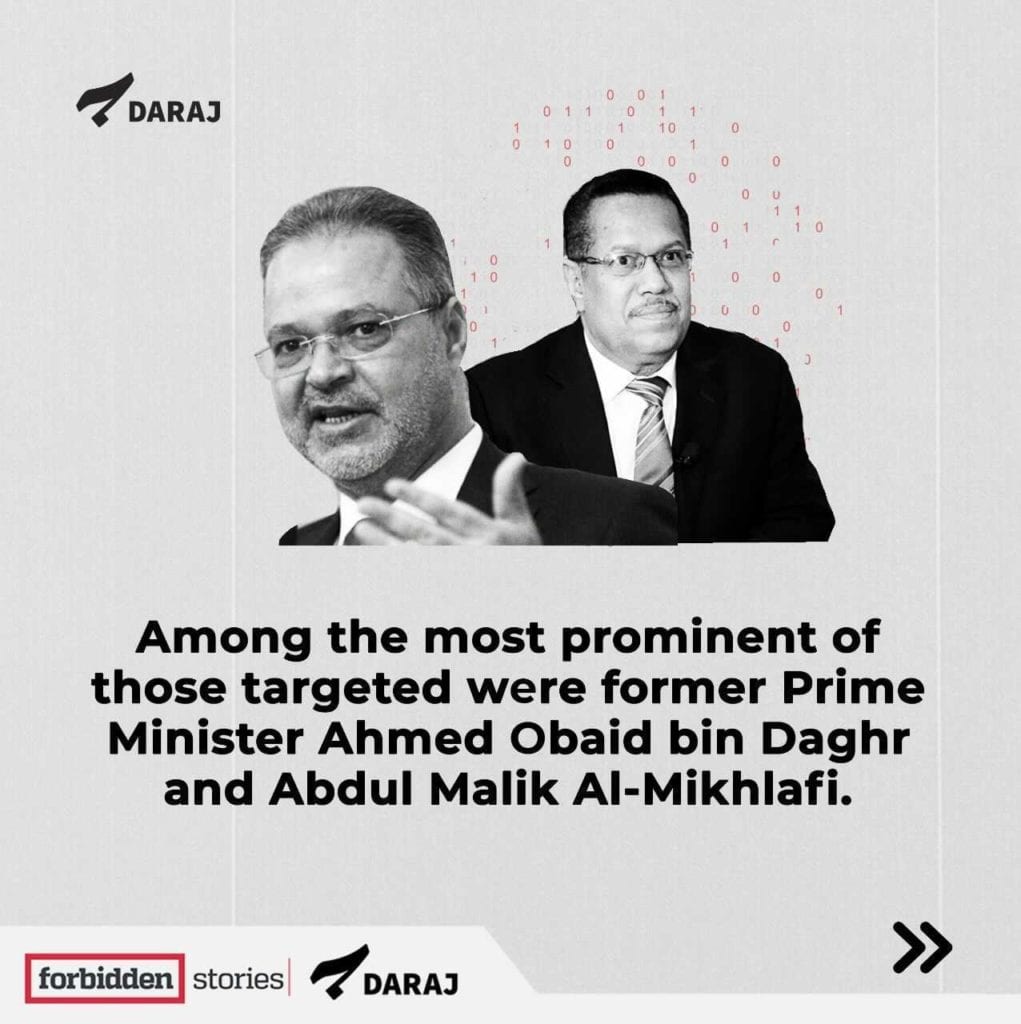

The UAE: Saudi Arabia’s new rival in the region!
Although the UAE and Saudi Arabia started the battle for Yemen hand in hand, and they are clients of the Israeli company “NSO” in particular its spyware “Pegasus” and are active in the field of eavesdropping attempts and penetration of phones of public figures in the regional arena, this did not prevent the UAE from making its own way in this battle. And the attempt to target (or target) the Yemeni government ministers electronically, even while they are residing on the territory of its Saudi “ally”.
The political divisions in Yemen, especially after the great rift between the Hadi government and the Southern Transitional Council that was formed in 2016, may be the direct reason after which the UAE’s attempts to eavesdrop on the Hadi government’s ministers began. From that time to the present day, the deep differences between the two countries and the competition for political influence, economic development and technological progress, whose features will become more and more clear in the coming stages, have become more and more apparent.
Recently, the UAE rejected Saudi Arabia and Russia’s proposal to extend the existing agreement on oil production between the countries of the “OPEC Plus” alliance, and demanded that production quotas be distributed more fairly.
Consequently, the UAE is imposing itself as a strong competitor to the Kingdom, and if the UAE has taken the decision to wiretap the ministers of Hadi’s government by itself and without the knowledge of the Kingdom, this indicates a great division and schism between the two countries, especially since this is a violation of Saudi sovereignty by trying to eavesdrop on resident diplomatic and political figures (or was residing at the time of targeting) on Saudi territory.
In this case, what is the opinion of the kingdom, which has always considered Yemen its backyard, of the Emirati intervention and wiretapping of the ministers of the legitimate government, even within Saudi territory?
Media organizations participating in the “Pegasus Leaks”:
Forbidden Stories – Le Monde- Suddeutsche Zeitung -Die Zeit – Washington Post – The Guardian -Daraj – Direkt36 – Le Soir – Knack-Radio France – The Wire – Proceso – Aristeui Noticias – OCCRP- Haaretz – PBS Frontline
Read Also:


